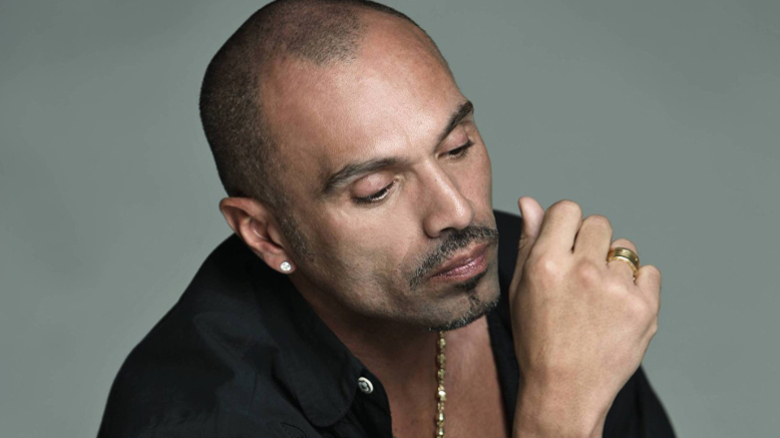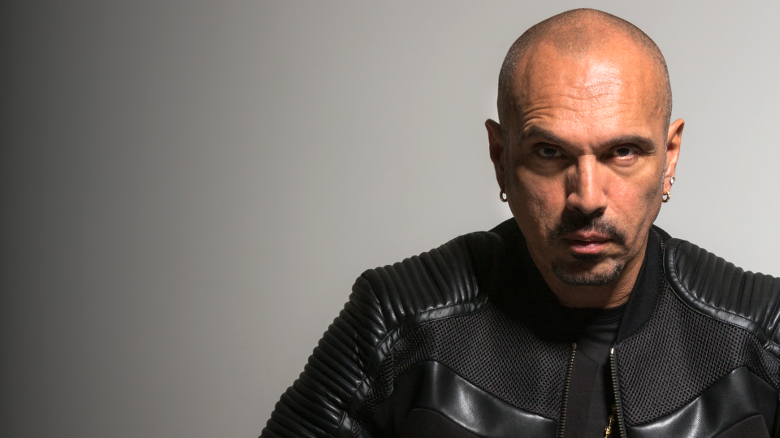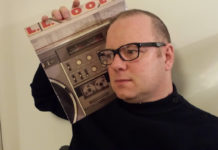How did it evolve from there? Was that the heyday of Def Mix?
No, I feel that they came up with the remix category late. Because the remix category was happening really since the 80s. So I felt like it wasn’t the peak period because if it was happening at our peak period, we would have won multiple Grammys. For sure. And at that time I won it, I wasn’t even mixing that much anymore. I was more travelling as a DJ by that time. 1995 I actually got bored with remixing and I almost detached myself from remixing and I was travelling a lot. I was making money travelling.
Were you kind of tired of working in the studio so much?
It was that the first ten years of remixing you had different tempos. There were different rhythms. So it was more fun. When House mixes became famous, when everybody wanted a House mix, was when Steve Hurley remixed Michael Jackson’s „Remember The Time“. And in those days, it was called time-stretching. And there was like only one machine at that time that did time-stretching and it cost a thousand dollars and there weren’t that many of them. But „Remember The Time“ was such a hit record, it wasn’t even about the original, it was about the Steve Hurley mix, and after that what record companies always wanted was a House remix. The original concept of a remix in the old days was that you took the original and you extended it, but you kept the original parts. You just created an intro, a break, and an outro. But you used the original parts. Okay, maybe we added some keyboard parts. And then we added some percussion. But it was still the song of the original producer. Then it got to a point where we were just taking everything out and we were just keeping the vocals. So in reality, we’re re-writing a record. On the musical side, I mean. Because we’re adding whole new music. When it came to „Mr. Loverman“, there I re-did the whole track, everything. I got no writers and I got no production credits. The original writers and producers, they’re the ones that went running to the bank. And the original producers had nothing to do with what I actually did. Same thing with „Dreamlover“. Same thing with „Finally“ by Ce Ce Peniston. That was another record. Same thing with Jamiroquai’s „Space Cowboy“. You listen to the original „Space Cowboy“ that’s on the album, the remix is nothing close to what the original on the album is. I took „Space Cowboy“, it was a great musical composition, but it wasn’t really a verse-chorus-verse-chorus kind of record.
It was more like a jam.
Yeah, it was a jam. So I made this thing into a song. So the thing was that after a while everybody wanted the boom-boom-boom and it got to a point. Stevie V’s „Dirty Cash“ was another one where I changed everything, and there’s other people running to the bank. And it insulted me that when they worked on a future album that they didn’t bring me back and say „Hey, come work with us and be part of the next project.“ I really got fed up with creating hits for people. It just wasn’t fair. And doing the same beat every single day…
It was too one-dimensional?
It became too one-dimensional, yeah. I’d rather make my own music for that, than to keep doing the same. Even though this is what it is today, but at that time it was different. It was nice when I was mixing records at a 100 beats per minute. It was interesting, the next one was at 110 bpm. The other one was at 120 bpm. When I was making two or three records a week, that’s what made it interesting. And like I said, I had to draw a line to stop giving my ideas away. And when you’re mixing records and they’re selling millions of copies, and you got a one time fee. It’s one thing when you’re starting, but I had to draw the line. And at that time, in the mid 90s, travelling, DJing, touring – that compensated.
Video: David Morales – Needin’ U
So you were not depending on it anymore and you lost interest?
Yes I did, I did. It was good to take a time off. And I still did some mixes here and there, but more things that I had to be into. Like Toni Braxton, it was nice to go to the studio with Toni Braxton, Julio Iglesias, U2. And it’s funny because I worked with all these incredible singers. I worked with everybody. I did some stupid records like „Needin’ U“ in my studio. I put in like three hours and I took two old records that I really liked and used to play back in the day and I just did the same out of a sample. And in those days there was no digital, so whenever we made something to play, we used to have so-called lacquers.
Reference discs?
Reference discs. Everytime you played it, it wore down. So anyway, I started playing this „Needin’ U“ in clubs and people used to be like „What is this record?“ „This is killer, this is killer! You have to put this out!“ I was like „This is some sample shit I fucking slapped together“ And I thought no, I can’t play that. I worked with Mariah Carey, I did fucking this, this, this. I did that Reggaeton sound, that whole Jamaican dance. I did that shit on my first album which was way ahead of its time. And I remember doing two videos, 100.000 Dollars each budget for both of those videos, they make it anyway. Here I do this Ibiza video for like 11.000 Dollars „Needin’ U“ and it was like the biggest fucking thing! I did this album, I spent 225.000 Dollars, I worked with Sly & Robbie, I got some incredible singers, I had Anastacia. She sang on my first album. And here I do this stupid fucking sample record and people were like „Woah, it’s amazing“, the best thing in the fucking world.
At that time in late Nineties, early Noughties, were you kind of losing interest in House anyway? Or was it kind of like an up and down thing, cyclical development or was it just going along?
I was just going along and I was busy touring. I was just busy touring and making a lot of money touring. Come the summertime alone, and even now it’s difficult to make music. I mean, now I walk on with my studio, I have my keyboard over there so now I could, because with the new technology I am able to create now. And it wasn’t until the new technology really took off that I was inspired to get back into things. I was old school, you went into the studio that was multi-tracks, all these things that you couldn’t take on the road with you and you needed to pay people to do these things. Now with the technology, the internet, Ableton, ProTools, all this, you can make whatever you want. So my studio is always with me. I still have a big studio in New York, I still use an engineer but I’m always in studio mode.

I have read you produce a lot with Ableton.
I love Ableton. I live on Ableton. It’s my best friend. My best friend for creating mash-ups. If I get a record, maybe I only need a part of it. I’ll take the best part, I’ll add jams, I’ll create things. In the old days when people hired a guy from New York to play in the world, it’s because you brought a sound. And they can hear that sound, they heard you play that sound. And the record stores were only over there. London has record stores, Italy, maybe Germany, maybe one store in France, but that was it. But everywhere across the world people hired you because you had a sound and they wanted that. They didn’t want to hear anything commercial. It got to a point, even when I was playing in one of the most underground clubs in Italy, it doesn’t matter that Ce Ce Peniston was a big record that I mixed, they know it, they don’t want to hear it. We want to hear some new shit! But now, today, because of the internet, everybody has access to Beatport, everybody has access to Traxsource, everybody has access to the same information. And now everything has changed with DJs becoming producers, so you have to bring something different. Your personality is your personality when you program records, but a lot of people now are playing their own stuff. I’m the last one that wants to play my old records, I want to play new stuff. But obviously people come up, they want to hear „Needin’ U“, it’s like, „But I have some new things!“ And you see all these big guys. They are producers, making their music. People want to sing along to those things. We’re talking about the big level market. I don’t want to play my old records. I don’t want to play these singalongs. I don’t want to play „How Would You Feel“. I don’t want to play „Dream“. For me one of those underground records that I’ve done that’s still underground is „I’ll Be Your Friend“ because it was never commercial, it’s like an underground classic. „Where Love Lives“ for example, and things. Because I was never into ProTools, I was never a computer geek. And I started with Ableton, editing, and once I got comfortable to edit with Ableton, it really inspired me a lot to get back into making music. That thing gave me so much rejuvenation. Because I can work it and I’m not a slave to other people. So when I want to go into the studio, if I get an idea, sometimes I need to hold onto the idea. Back home it was like okay now I have to do a studio session, I have to put all the moving parts into place to get it. So today I love it that I get records and instead of in the old days when you went to a fucking hotel, you went to a different country, there was no TV, nothing else instead of reading a book. And now I can sit down, listen, create some things.
You achieved more than many in your career so far, in your first forty years. What is there still to achieve? Do you still have a goal?
A goal, oh my god, if I could be like an ambassador to bring peace to the world, I would love to. I mean, just teach positivity because there is so much negativity going on out there. I’m doing this TV show in Italy that’s called „Top DJ“, it’s like the X-Factor for DJs and it’s just amazing how the culture has changed. And even if I have a lot to say, even if I don’t agree, because a DJ is a DJ and a producer is a producer. And I’m not saying that a DJ cannot produce. But because the technology has made it easy for people to do both. And I’m not saying do it both successfully. I’m happy to see what the genre of DJing has come to. The respect that DJs get. Even though it has evolved into something else, even though the new generation doesn’t respect or really knows how it got here. They have no clue. A lot of these kids never touched a turntable, never felt a piece of vinyl. They’re not growing up in the era where that’s what it is, that’s how you get to music. So I’m doing this show and you have some criticizing the show and the music. But I’m like „I’m not here to judge the music. I’m here to judge and to give opinion to the DJ.“ Because there is DJing and there is producing. I give them advice, and I have an opinion and judge them based on the technology part of things. To be better at it. To give them the criticism, what’s wrong and how you should go about it. I try to give the best advice that I can give to the next young DJ, because you got some stupid people that are DJing and are doing it for the wrong reasons and are making a lot of money and they’re getting paid and it’s a show. But there’s a lot of DJs out there that do have the passion. And they dream about playing in a club. And they dream about being this. And I was once one of them. So as a person that has been playing 40 years and has seen the whole spectrum of it evolve, and to still be a part of that spectrum – I’m not here to be bitter about it, because it has evolved. I was once one of the big guys, making the big money. I’m not that guy making the big money anymore, but I’m doing this because I love it. Not because I want to be a star, not because I want to play in a stadium, not because I want a private jet, not because I want to be a superstar. I didn’t wake up a superstar. The people give you that title. People wake you up a superstar. So I’m just here to give advice to the new DJs, I’m here to offer them the tools. And my advice on how they can be a better DJ. And that’s my position. Because I didn’t have that. But I can give that to somebody, as cruel as it may be. And today production is a big marketing aspect of every DJ – every DJ calls himself a producer even if he’s programming beats. Because they’re programming beats they think they’re a producer, but they don’t know how to work with vocalists, what about the songwriting, what about arrangement. But a lot of of the music that’s being played, none of that comes into play. There are a lot of grooves. And a lot of grooves are good! So I tell the new DJs take piano lessons, take musical lessons, it will make you a better DJ. You will hear tonality better, listen to different kinds of music. Let’s say the kid that’s only growing up with EDM doesn’t know anything more, I will say: „Listen!” If I hear a new DJ it’s my job to hear what this guy is about, it’s research, it’s just to understand. Because I sometimes need to be inspired. We all could use being inspired. And you know, I’m not up on everything. And also as a producer, I will hear somebody play something and be like „What was that?“ I hear an idea! It’s all about inspiration, opening up your ears, don’t be so close-minded. You can be a commercial DJ and maybe you need to grow up. If you only play EDM because they are the only DJs you know and you’re 17, 18 years old and you’re only listening to the radio. You’re not old enough to go to clubs, you’re not old enough to go around the world, you don’t have the access to hear these sets. So maybe I’ll say: If another guy comes into town, listen to him! Because when you hear different things like me, when I was a commercial DJ and I went to the Garage and I went to a raw House night, I was like „Wow“. I’m hearing something that I like and it’s expanding my horizons.





